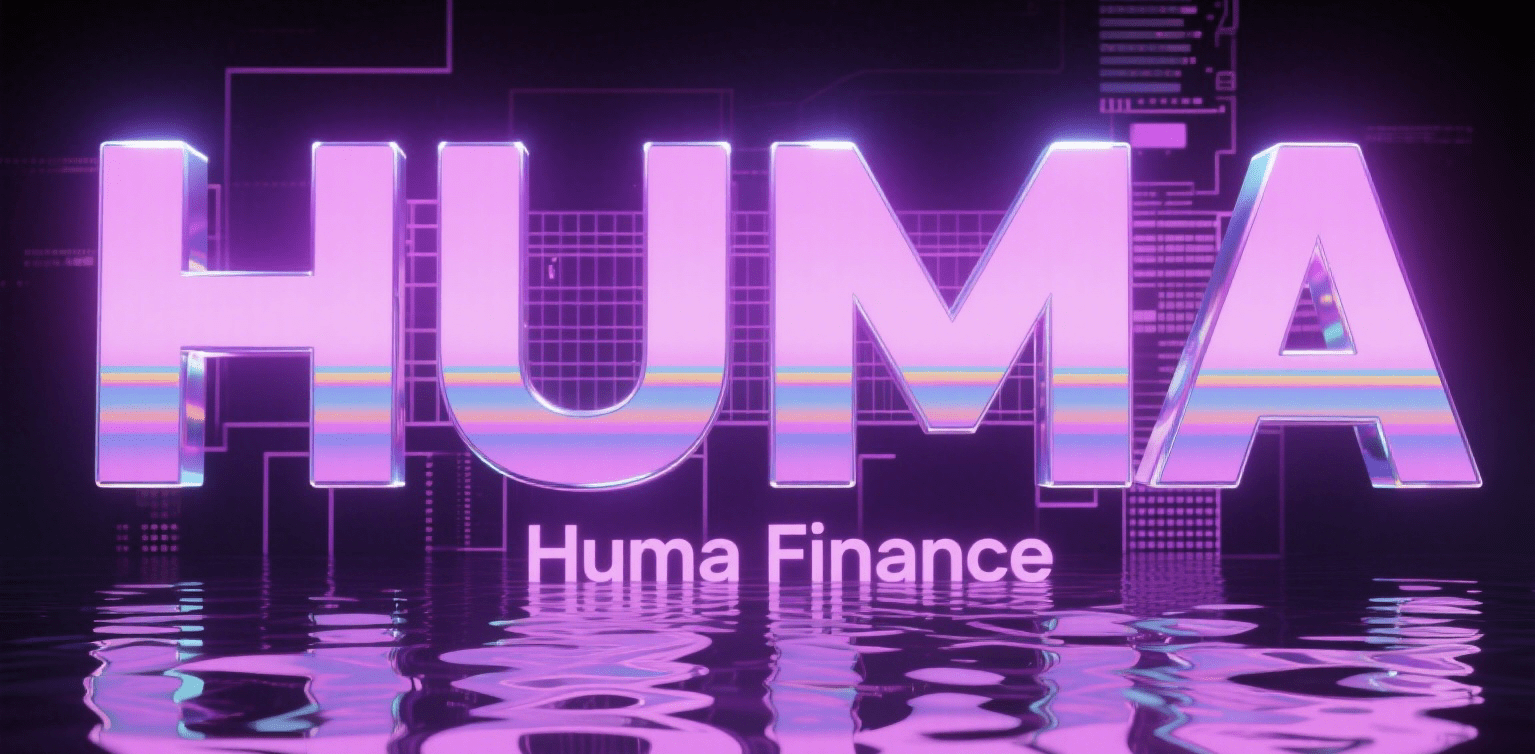Last week, I received an urgent design order, and the client said, 'Pay 30% deposit before starting.' But all my money was tied up in projects that hadn’t settled yet. After searching through lending apps, I found that either they required NFT collateral or had terrifyingly high interest rates, and I was about to watch the order slip away — until a friend sent me a link to Huma, where a line popped up on the screen: 'Use your future manuscript fee as collateral, you can borrow 80% of expected income.' At that moment, I felt like I discovered magic that could tear the calendar forward ✨.
It’s not a lending platform; it's a 'converter of time cash flow.'
Traditional lending focuses on what you currently have (like houses or cryptocurrencies), but Huma looks at what you 'will have in the future.' It acts like a precise financial translator, converting 'future money' into 'liquidity you can use now':
For freelancers like me, uploading contracts with clients allows the system to automatically analyze the manuscript fee amount and payment time, calculating how much I can borrow in just 5 minutes — last time, my 15,000 manuscript fee contract was approved for 12,000, and the speed of payment was faster than the client’s deposit 💸;
Small merchants find it easier; do you have a bunch of invoices pending collection? After uploading, Huma's smart contract checks like an accountant: 'This invoice for 50,000 due in October can now borrow 42,000,' so you don’t have to wait for clients to pay slowly, and cash flow is no longer stuck 📄;
The best part is for workers who bind their salary account flow; it can calculate 'your salary next month is likely to be 23,000, and you can advance 18,000 now.' During emergencies, you don’t need to ask relatives for help, it’s dignified and fast — my cousin was short 5,000 for rent last month, and this solved her problem 🏠.
How does it know if 'future money' is reliable?
Huma's secret weapon is a smart contract system called 'Cash Flow CT Machine':
It doesn’t look at your deposit numbers but analyzes your income patterns: the contract fulfillment rates of freelancers, the historical payment speed of merchants' invoices, and the stability of workers’ salary distributions, analyzing 'will future income dry up' like a doctor reading a CT scan;
For example, if my uploaded contract includes 'late payment penalties,' the system directly adds points for me, increasing the limit from 70% to 80%; and my neighbor, who runs a small supermarket, has maintained a stable borrowing limit of 90% due to 3 years of consistent monthly statements 📊;
No manual review is needed throughout the process; smart contracts automatically transfer funds and deduct repayments when income arrives. On the day my manuscript fee arrived, the system acted like it had set an alarm, precisely deducting the loan + a very low service fee, making it easier than borrowing money from friends ⏰.
HUMA Token: Making the 'Time Converter' run more smoothly
This token is not just for speculation; it acts more like 'lubricant' in the ecosystem:
Holding HUMA unlocks an 'expedited channel'; the second time I borrowed money, because I had saved some HUMA, the review time shrank from 5 minutes to 1 minute, allowing me to meet the client's deposit deadline 📱;
Merchants pledging HUMA can increase their borrowing limits; the owner of the coffee shop downstairs increased his invoice borrowing ratio from 85% to 90% after pledging, and now he has enough extra cash each month to hire a part-timer ☕;
The most interesting feature is the 'Cash Flow Prophet' mechanism, where users can contribute their income data (anonymously), and if they guess the fulfillment rate of a certain type of income correctly, they can earn HUMA. My cousin earned enough tokens by guessing the 'first-month salary payment rate for fresh graduates' to buy a new lipstick 💄.
Now Huma is always on my phone, like carrying a 'time wallet.' It hasn’t made lending cold and impersonal; instead, it feels like a financial friend who understands you: knowing you need money urgently now, but believes you can earn in the future, turning 'trust' into liquid assets through technology. Perhaps the true value of Web3 lies in this innovation that transforms 'future certainty' into 'present security' — after all, who hasn’t encountered moments of 'short on money today, but having money tomorrow'? 💡
#HumaFinance🥰🥰 @Huma Finance 🟣 $HUMA
